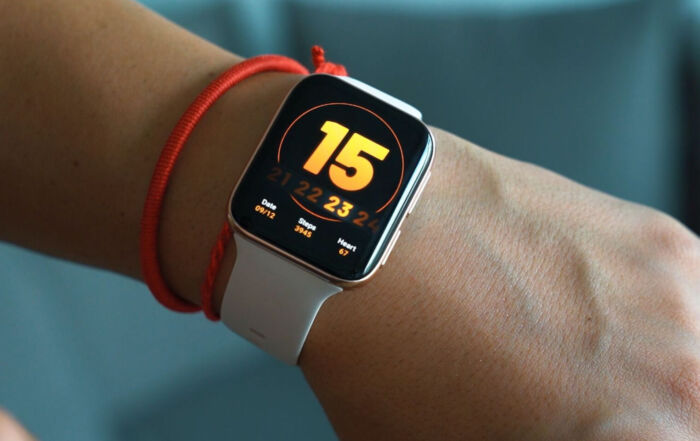This article is the first part of a series called Reflecting on Technologies which hopes to shed some light on how technologies have shaped human interaction. It hopes to encourage meaningful discussions and reflection on the way technologies are implemented and used in the current age. The opinions stated in this article are personal of Celine Röder (Class of Spring 2022) and are not those of the Center for Digital Technology & Management.
***
Self-trackers. What comes to your mind?
Obsession? Health? Imprisonment? Advancement? Biohacking? Burden? Waste of time?
Whatever you’re thinking, you’re probably not the only one. It seems like self-trackers have taken over the world by storm in the last years. I must admit that I got an Oura Ring, an Apple Watch and tried Continuous Glucose Monitoring in the span of half a year. And it’s not only my generation of Gen Z and Gen Y, but older generations are also seen sporting fitness trackers and the like. Yet, it’s hardly surprising that in an age where the mantra “knowledge is power” reigns supreme, people have extended their obsession with data to tracking their own lives. From monitoring every step taken to counting every calorie consumed, self-tracking has become the latest trend in the quest for self-improvement. But like any good thing, it comes with its ups and downs, and to me, there’s a question that looms above it: where should it end?
I was wondering how we as humans went from living life in oblivion, following our daily routines and not caring about anything but the current day (this happened probably still in the early 20th century Europe) to a society which is obsessed with quantifying every aspect of their lives including fitness, calorie, sleep, glucose and even how they spend their time.
This obviously didn’t happen overnight (surprise). Humankind has certainly occasionally logged personal information, I guess even when going out on a horseback ride in the 1870s, you wanted to know how long you have been gone – at least to be back in time for dinner. Yet, this movement of quantifying yourself which we’ll get to in a second hasn’t really picked up until we had the technology for it. While this may seem forgettable, this is a fact we cannot dismiss. Without the technological evolution we have borne witness over the last 30 to 40 years, we would not be where we are today.
Self-tracking first appeared in the early 2000s as the Quantified Self Movement which was set-up as a local group meet-up in the Bay Area in the US. However, it then spread all around the globe, fueled by the rapid availability of more and more devices and technologies. The most prominent example nowadays is Bryan Johnson, an entrepreneur turned full-time self-quantifier whose goal is to reverse aging and prove it by meticulously tracking everything in his life and body. If you believe the numbers on his website, he is going strong (this is maybe an understatement). Have a look yourself at his protocol and results online on his page.
For most of us, reversing aging is probably not very high up on our list. So why do people turn into data nerds and are recording even the most mundane aspects of their lives? I guess there are several reasons leading to this development.
1. Self-Improvement: The pursuit of a better version of oneself is perhaps the most compelling reason. We’ve all been there, haven’t we? (Especially when we vowed to never drink again and stay on our fitness routine after the last night out.) Self-tracking is a great tool to support and sustain this transition to a healthier you since you can measure your progress and make better decisions.
2. Accountability: Hand in hand goes the argument of accountability. It’s much harder to indulge in that second slice of cake when your calorie-counting app is giving you the evil eye, or you see that your friend has closed their Apple Ring circles while you haven’t. The guilt inflicted by your digital accountability buddy is real.
3. Curiosity: Some people are just plain curious – though I think they might be the minority. They wonder how many steps they take in a day or how long they spend scrolling through social media without feeling the need to act on that data.
We can certainly see that there are some real benefits to keeping tabs on your life: Self-Awareness, motivation, health benefits and increased efficiency are only a few of the possible upsides of self-trackers. Seeing progress, revealing patters and early warning of health issues create a strong feeling of being in charge of our decisions, ultimately giving us more freedom of choice.
What I have learned from my wearables is how I can optimize my sleep for better recovery, slowing down when my measurements show stress in my body and understanding how my hormonal changes as a woman influence my sleep, recovery and ability to train. Definitely, I am now able to make more informed decisions and implement changes which benefit my short- and long-term health.
While this is all great, self-tracking isn’t without its perils: first, there’s the obsession that can come with it. Becoming consumed by the numbers, can lead to stress and anxiety when you feel you must check in on your progress all the time. I initially had a phase where I needed to check my Apple Watch and its circles all the time. Was it useful? Not really, but it did stress me out when I felt like I was falling behind.
Then there’s the privacy aspect. As we track more aspects of our lives, we’re often entrusting tech companies with highly personal data. And we don’t really know what they could be doing with it. In a dystopic world, the line between self-improvement and invasive surveillance can become dangerously thin and our devices can be used for following and investigating us. Ultimately, data should belong to those who create it and if they give it up for science research should be their own decision.
Lastly, there’s a risk of reducing your life to mere numbers. Life isn’t just about counting steps, calories, and hours of sleep. It’s about fully leaning into the experiences, emotions, and richness of human existence which shouldn’t be diminished by your tracker.
An additional thought I have been having: where does it all end? I’m certain that soon even more advanced self-trackers become available which might integrate more deeply into our lives and pose more privacy issues. We then have to decide whether we want a social interaction tracker that measures quantity or quality of our social life or an emotional wellbeing tool that knows when we are having mood swings and are feeling down.
When is enough enough?
In my opinion this is a line that’s probably different for everyone. While some love gathering insights, others might feel stressed out. It’s important to define boundaries for what you will and won’t track and especially learn that “bad” numbers don’t define you and your actions. Leverage the data you collect wisely and make informed decisions, set goals and make improvements, but don’t forget to prioritize your enjoyment and connection with your life besides the numbers: love, friendship and personal experiences. You’re human, you’re not supposed to be perfect all the time.






